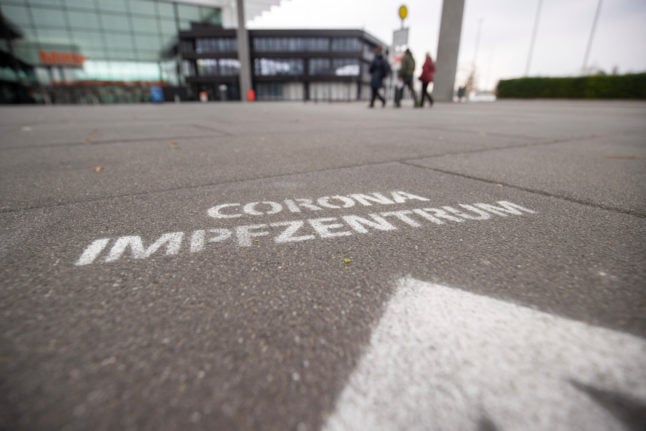Bavaria will no longer require people who have received both Covid jabs to get rapid Antigen tests before activities like going to the hairdresser, state premier Markus Söder said on Tuesday.
“Those who have received two injections (of the vaccine) will no longer have to present tests as of tomorrow (Wednesday),” Söder said.
Currently people have to present a negative rapid Covid test in order to get a haircut or visit a non-essential shop.
According to the Bavarian state chancellery, fully vaccinated people will be “put on an equal footing with people who have tested negative”.
However, privileges, such as access to currently closed facilities like swimming pools and restaurants, are not provided for in Bavaria.
It came after the government held a summit on vaccination rights. Health Minister Jens Spahn said the government would present proposals to be passed by the Bundestag and Bundesrat by the end of May.
READ ALSO: When will people with Covid immunity get more freedoms in Germany
Söder said Bavaria also planned to lift the priority order for vaccines in May, allowing all adults to apply to get a jab – also ahead of the government’s schedule which is aiming for June.
Up to April 26th, Bavaria had inoculated 6.9 of its population – or 910,900 people.
‘Giant step forward’
Berlin is also getting rid of the obligation to test for vaccinated people and those who have recovered from the disease, it emerged on Tuesday.
“We have clearly defined the group of people who are exempt from compulsory testing,” said health senator Dilek Kalyci.
Those who have recovered from Covid must be able to show a positive PCR test certificate. For them, the regulation applies for six months from the 28th day after the test result. After that, they have to show they’ve had at least one vaccine dose of in order not to have to show a negative Covid test.
READ ALSO:
- Germany moves to relax Covid rules for vaccinated people
- ‘The only way forward’: Should Germany introduce a Covid-19 immunity passport?
Meanwhile, people in Berlin with Covid immunity also no longer have to go into quarantine if they come into contact with a Covid-infected person. From now on they only have to self-isolate if they show symptoms after contact.
Hospital staff are exempt from the relaxation of the quarantine regulation.
“We are taking a giant step forward here,” said health senator Kalayci.
Berlin had fully vaccinated about 8.8 percent of its population – or 323,672 up until April 26th.
Other federal states – such as Lower Saxony, Thuringia and Hesse – are also introducing similar rules on vaccination rights. It is likely others will follow so keep an eye out on local rules.
IN NUMBERS: Is Germany ramping up the Covid-19 vaccine rollout?
Up to April 26th about 23.9 percent of the total German population had received at least one vaccine dose. About 7.3 percent or 6 million have been fully inoculated.



 Please whitelist us to continue reading.
Please whitelist us to continue reading.
Member comments